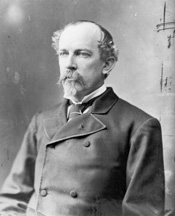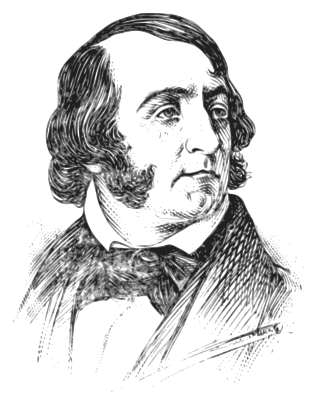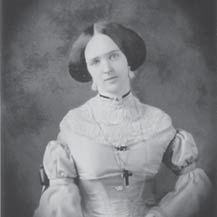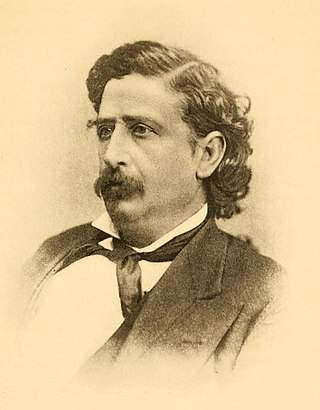Related Research Articles

Edgefield County is a county located on the western border of the U.S. state of South Carolina. As of the 2020 census, its population was 25,657. Its county seat and largest community is Edgefield. The county was established on March 12, 1785.

Edgefield is a town in and the county seat of Edgefield County, South Carolina, United States. The population was 4,750 at the 2010 census.

Louis Trezevant Wigfall was an American politician who served as a Confederate States Senator from Texas from 1862 to 1865. He was among a group of leading secessionists known as Fire-Eaters, advocating the preservation and expansion of an aristocratic agricultural society based on slave labor. He briefly served as a Confederate Brigadier General of the Texas Brigade at the outset of the American Civil War before taking his seat in the Confederate Senate. Wigfall's reputation for oratory and hard-drinking, along with a combative nature and high-minded sense of personal honor, made him one of the more imposing political figures of his time. He was also a slave owner.

Milledge Luke Bonham was an American politician and Congressman. He was later the 70th Governor of South Carolina from 1862 until 1864, and a Confederate General during the American Civil War.

Matthew Calbraith Butler was a Confederate soldier, an American military commander and attorney and politician from South Carolina. He served as a major general in the Confederate States Army during the American Civil War, reconstruction era three-term United States Senator, and a major general in the United States Army during the Spanish–American War.
More than 1,500 African American officeholders served during the Reconstruction era (1865–1877) and in the years after Reconstruction before white supremacy, disenfranchisement, and the Democratic Party fully reasserted control in Southern states. Historian Canter Brown Jr. noted that in some states, such as Florida, the highest number of African Americans were elected or appointed to offices after the end of Reconstruction in 1877. The following is a partial list of notable African American officeholders from the end of the Civil War until before 1900. Dates listed are the year that a term states or the range of years served if multiple terms.

David Johnson was the 62nd Governor of South Carolina from 1846 to 1848.

Benjamin Cudworth Yancey Jr. was an American politician, lawyer, officer in the Confederate States Army during the American Civil War and diplomat.

Waddy Thompson Jr. was a U.S. Representative from South Carolina and U.S. Minister to Mexico, 1842–44.

Pinckney Downie Bowles was a lawyer, county prosecutor, probate judge, and a Confederate military officer during the American Civil War.
Thomas Jefferson Withers was an American politician from South Carolina who served in the Confederate States Congress during the American Civil War.

John Marshall Martin was a slaveowner, an officer in the Confederate Army, and a member of the Confederate Congress.

Basil Manly Sr. was an American planter, preacher and chaplain best known as the author of the Alabama Resolutions, which formed part of the argument for creation of the Southern Baptist Convention on proslavery grounds.

Lucy Petway Holcombe Pickens was a 19th-century American socialite of Tennessee and Texas, known during and after her lifetime as the "Queen of the Confederacy". She was also a First Lady of South Carolina. Described as "beautiful, brilliant, and captivating" by her male contemporaries, she helped shape the stereotype of the "Southern belle." Born into a planter's family, she moved with them to Marshall, Texas, the seat of Harrison County, at age 16.

Alexander W. Monroe was a prominent American lawyer, politician, and military officer in the U.S. states of Virginia and West Virginia. Monroe served as a member of the Virginia House of Delegates and West Virginia House of Delegates representing Hampshire County. He was the Speaker of the West Virginia House of Delegates during the 1875–1877 legislative session. Monroe also represented Hampshire County in the West Virginia Constitutional Convention of 1872.
Benjamin Herndon (1749–1819) was a colonel in the Wilkes County Regiment, a Patriot unit of the North Carolina militia in the American Revolution. After the war, he was elected to represent Wilkes County, North Carolina in the state legislature: twice as a senator and twice as a member of the house. After 1790, he moved with his family to Newberry County, South Carolina where he built a plantation called "Mollihon".
Joseph Crews was a Reconstruction militia leader who served as a member of the South Carolina House of Representatives from 1874 until his assassination in 1875. He was the state's highest-ranking military official in the 1870s and was put in charge of the state militia whose main purpose was to protect African-American voters. African-Americans were 58.9% of the population of South Carolina in 1870. He was reportedly murdered by Democrats in the run-up to the 1876 South Carolina gubernatorial election.

Caroline Douglas Meriwether Goodlett was an American philanthropist and the founding president of the United Daughters of the Confederacy.
Lawrence Cain was a lawyer, state representative, state senator, and public official in various offices during the Reconstruction era.

Edwin Warren Moïse was a Jewish-American lawyer, Confederate officer, and Adjutant-General from South Carolina.
References
- 1 2 Schwartz, Kathryn Carlisle (March 21, 2003). Baptist Faith in Action: The Private Writings of Maria Baker Taylor, 1813-1895. Univ of South Carolina Press. ISBN 9781570034978 – via Google Books.
- ↑ Stanley, Sarah (30 November 2018). "Untold Florida: Where Waldo Got Its Name, WUFT".
- ↑ Francis, Elisabeth Wheeler; Moore, Ethel Sivley (March 21, 1947). "Lost Links: New Recordings of Old Data from Many States". McQuiddy Printing Company – via Google Books.
- ↑ Representatives, South Carolina General Assembly House of (March 21, 1846). "Journal of the House of Representatives of the State of South-Carolina". State Printers – via Google Books.
- ↑ O'Neall, John Belton (March 21, 1892). "The Annals of Newberry: In Two Parts". Aull & Houseal – via Google Books.
- ↑ "Georgia Genealogical Magazine". Southern Historical Press. March 21, 1989 – via Google Books.
- ↑ Allardice, Bruce S. (March 21, 2008). Confederate Colonels: A Biographical Register. University of Missouri Press. ISBN 9780826266484 – via Google Books.
- ↑ McClendon, Carlee T. (March 21, 1970). "Edgefield Marriage Records, Edgefield, South Carolina: From the Late 18th Century Up Through 1870". R.L. Bryan Company – via Google Books.
- ↑ "Florida Ante Bellum Plantations 2".
- ↑ "Benjamin Waldo death, 11 May 1871, Edgefield Advertiser". Edgefield Advertiser. May 11, 1871. p. 3 – via newspapers.com.